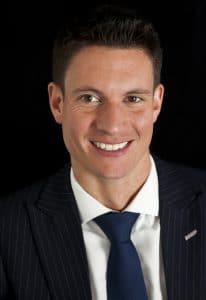As part of the upcoming London Summit 2018's effort to bolster the proficiency of industry participants, we are teaming up with several leading industry bodies that collectively share this goal. This includes the Society of Technical Analysts (STA), a not-for-profit Technical Analysis Society, pioneering work in behavioral finance.
We sat with the STA's incoming chairman, Tom Hicks, to get a better understanding of the challenges technical analysts face today. Moreover, Mr. Hicks spells out the ways he believes the STA can contribute to a shifting financial services sector in London.
Can you tell us about your industry journey, namely how have you become a trader?
I did a master’s in engineering and like many of my peers we tried to get jobs in consulting or banking. I had my heart set on consulting, but my friend told me the banking interviews were harder, so I should do those first before trying the consulting ones.

Tom Hicks
‘Unfortunately,’ I landed a job on the graduate scheme at Morgan Stanley and that really got me interested in markets. I moved to Standard Bank (now ICBC Standard Bank) where I worked on the trading desk and learned how to use technical analysis to trade. I ran the G7 fixed income desk before moving onto the emerging markets desk where I traded a lot of Russia and tried to start a market in Kazakhstan!
However, in the back of my mind I always wanted to use my engineering skills to program a ‘black box’ using technical analysis and run an algorithmic hedge fund. I took my STA diploma (and wished I’d done it years earlier to help with my trading) and then at one of the STA talks by Linda Raschke (who runs LBR asset management) I was inspired and teamed up with a friend (another trader from Standard Bank) and we did exactly that, learned how to program and set up a hedge fund ready to launch.
At that point we realized that having a strategy that works and even a track record is only part of the puzzle. It is a business and you need the backing to very quickly grow from £5m to £10m to £50m to make it feasible. At the moment I trade my own account using the strategies from the fund and look to have another crack at the fund launch in a couple years’ time.
Do you find the internal training in funds and banks today extensive enough?
I think the market has changed a lot. Traders in banks do not trade in the way they used to. Ever since the Volcker rule came in 2015 that forced many prop desks in banks to close, the remaining ‘traders’ are just pricing and hedging risk – I would not even call this trading!
In a bank they used to teach you how to price etc... but you have to learn how to trade from your peers and then work it out yourself.
In funds (I will split funds into systematic and the standard equity type fund) you may learn about strategies and fundamental but not technical analysis. Fund managers will declare that they don’t use technical analysis, however when you ask them if they look at price and do statistical analysis on it, they all do it but try to pretend its fundamental analysis.
Systematic funds employ armies of Quants who are great at maths and programming but useless at trading. If they took some technical concepts like cycles and tried to apply them they might find more of an edge.
In short I think funds and banks would find it beneficial to incorporate technical analysis training and gain an edge over their competitors.
ESMA ’s regulations for OTC retail brokers focus on professional traders. Should it require a certified training (by bodies like the STA) to permit leveraged trading?
I think at the moment retail brokers require two of the following 1) sufficient capital 2) extensive trading experience 3) proof of lots of ‘large’ trades of the last year if you want a professional account for more leveraged trading. I think doing something like the STA diploma would help you to understand risk and know how to position size correctly. I think it could be used instead/or to complement the earlier point above.
There’s a lot of chatter about AI ‘disrupting’ the trading profession (as depicted in accounts by Michael Lewis, Kevin Rodgers, and others). Can you elaborate on what robots can and cannot do in today’s trading environment?
I have to say there is a lot of hype around this and I guess the idea is that AI can learn to adapt to the market type e.g. range bound, trending etc... I don’t claim to know that much about the topic and I think I’m probably a bit ‘old school’ but what I do know it that what works is VERY simple.
As soon as you start adding more degrees of freedom you get to a point where you are effectively curve fitting. Having a machine do this for you sounds a bit like adaptive curve fitting. However, certainly on lower timeframes there is a lot more noise than there used to be which I think can definitely be blamed on HFT and AI.
What are the plans of the STA in 2019, or rather what should London Summit 2018 attendees know about the STA?
The Society of Technical Analysts (STA) represents the largest not-for-profit Technical Analysis Society in the world. As such, its primary objective is to foster greater use and understanding of Technical Analysis as well as its role within behavioral finance as the most vital investment tool available.
Joining us garners access to meetings, webinars, educational training, research and an international, professional network. Consequently, the STA operates by your side, equipping you with the tools and confidence to make better informed trading and investment decisions in any asset class anywhere in the world.
STA is a key media partner for the upcoming London Summit 2018, which will take place on November 13-14 at the Old Billingsgate. Mr. Hicks will be present on behalf of the STA at the summit's Networking Blitz on November 13. Prospective attendees should consult the following link for registration details and the event's agenda.


















